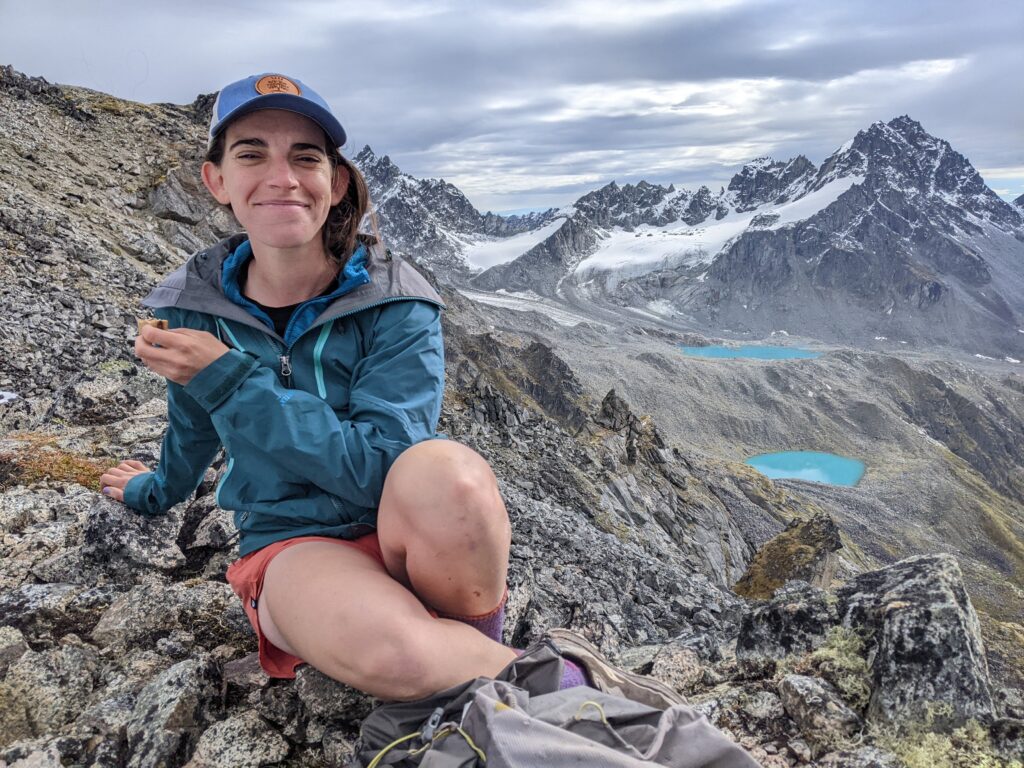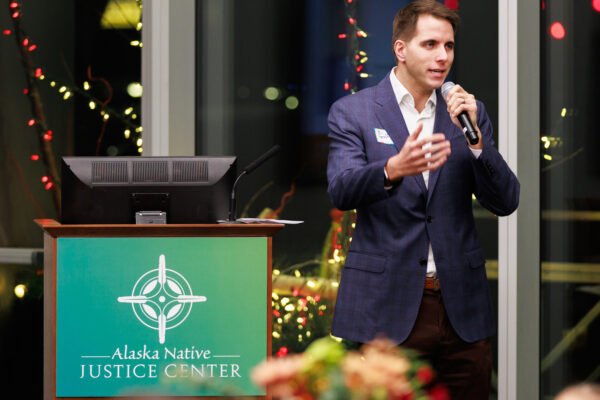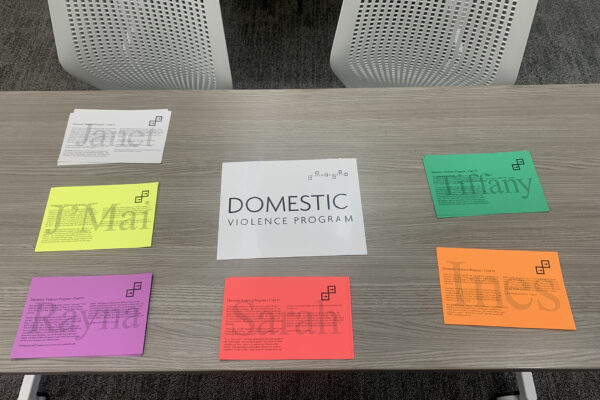ANJC’s Law Fellowship presents opportunity to explore a specialized field of law

Alaska is a unique place—especially when it comes to the law. While the state doesn’t yet have its own law school, it is home to a complex system of sovereign tribal courts and state courts that must work together within the bounds of overlapping federal, state, and tribal jurisdiction.
It’s the perfect place for law students and new lawyers to grow their knowledge and ability. This year, as ANJC’s law fellow, Lily Cohen gained experience with a field of law not widely available outside of Alaska.
“I’ve had really fantastic opportunities to learn from people who have really deep expertise in these areas that aren’t covered fully in law school,” said Lily, who attended law school on the East coast. “I took one federal Indian law class and [did a] reading group on constitutional law and colonialism, but the options were somewhat limited.”
ANJC’s Law Fellowship program offers law school graduates like Lily an opportunity to learn on the job in a full-time position. ANJC Fellows are provided exposure to a variety of Alaska Native legal issues while engaging in research and writing, litigation, representing clients, and advocacy, among other kinds of work.
Lily’s fellowship has provided ample opportunities to work with ANJC clients, as she fields calls with individuals seeking justice services. “I do a lot of translating legal information into more digestible terms—explaining why a program is helpful or useful, or what a certain statute means.”
She has also represented a client who was a survivor of domestic violence and is working on an appeal before the Alaska Supreme Court that challenges the state court’s recognition of a tribal court order. She also had the opportunity to accompany other ANJC staff to trainings in Bethel and Kotzebue, where she worked with tribal court judges and clerks on court codes.
Originally from Connecticut, Lily came to law as a second career. Previously, she was employed at the University of Alaska Fairbanks doing fieldwork that studied snow and permafrost. While she loved that work, her curiosity was piqued as she learned more about the overlap between environmental harms and harms to people.

While in law school, she worked on a project looking at how environmental law could be used to address some of the interpersonal harms that happen related to the extraction of resources from the earth and water.
“I focused on how that impacts Native communities, because a lot of the case study for that [project] is the oil fields in North Dakota,” Lily said.
In addition to her study of environmental law, she became interested in restorative justice—which eventually led her to apply for the year-long ANJC fellowship.
“I think the fellowship is a really great option for someone who’s interested in tribal justice,” Lily shared.
For more information on ANJC’s Law Fellowship and Law Clerk programs, visit our website. The application period for new clerks and fellows opens each October.




